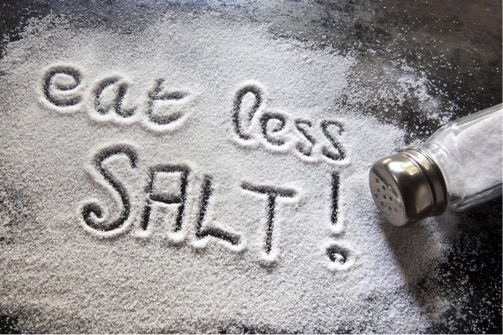By Corinne Rivard
Adding sugar to our food and beverages makes them sweeter. Based on the 2010 Dietary Guidelines for Americans, the major sources of added sugars are sugary drinks (including soda, energy drinks, and sports drinks), some desserts, and candy.1,2 Some studies among adults in the U.S. have shown that consumption of beverages containing added sugar is associated with higher risk for heart disease.3, 4 According to the American Heart Association, lowering the amount of added sugar in your diet can help you improve your heart health.2 What about artificial sweeteners? Do artificial sweeteners relate to heart disease risk as well? A new study among individuals living with HIV addresses this question.5 Read the Q&A below to find out more:

Q: What is Added Sugar?
A: Added sugar is a sugar that is added to food or drinks. Added sugars are different from sugars that are naturally found or already in food, such as something call fructose, which is found in fruit.2 An artificial sweetener is a low-calorie sugar substitute, meaning it is not a natural sugar.3
Q: What is aspartame?
A: Aspartame is an artificial sweetener. Aspartame is about 200 times sweeter than regular sugar, so a small amount of aspartame makes food or drinks seem sweet. As a result, artificially sweetened foods and beverages, such as diet sodas, are often low in calories.
Q: Can aspartame affect the risk of developing heart disease?
A: In general US adults, studies have shown that consumption of sugar sweetened beverages is associated with higher risk for heart disease.3, 4 In a recently published article among individuals with HIV5, researchers evaluated whether artificial sweeteners contributed to heart disease. Results showed that increased intake of aspartame (an artificial sweetener) was related to coronary plaque.5 Coronary plaque, is a build-up of plaque (or waste deposits) in the arteries surrounding your heart.6 Plaque buildup can increase the risk of heart disease – for example, heart attacks. More studies are needed to confirm the relationship between intake of aspartame and coronary plaque in individuals with HIV.5
Q: How can I reduce my intake of added sugars and artificial sugars?
A: Your diet is important to your overall health! If you want to know if the drinks and food you are eating contain added sugar, check the food label, located on the back of most packaged food items before buying or eating your food.
Total amount of sugar can be found under nutrition facts on a food label (see food label above). Additionally, added sugar will be listed in the ingredients often located on the food label (see food label above), or on the side of the package. Some names for added sugar include2:
- Brown sugar
- Corn sweetener
- Corn syrup
- Fruit juice concentrates
- High-fructose corn syrup
- Honey
- Sugar molecules ending in “ose” (dextrose, fructose, glucose, lactose, maltose, sucrose)
- Syrup
At your next doctor’s visit, discuss your dietary habits with your healthcare provider. This way you can stay proactive about your diet and health!
Sources:
- U.S. Department of Agriculture and U.S. Department of Health and Human Services. Dietary Guidelines for Americans, 2010. 7th Edition, Washington, DC: U.S. Government Printing Office, December 2010. https://health.gov/dietaryguidelines/dga2010/DietaryGuidelines2010.pdf Web. 24 August 2017.
- Sugar 101. Sugar 101, American Heart Association. http://www.heart.org/HEARTORG/HealthyLiving/HealthyEating/Nutrition/Sugar-101_UCM_306024_Article.jsp#.WRSciTe1vcs Web. 24 August 2017.
- de Koning L, Malik VS, Kellogg MD, Rimm EB, Willett WC, Hu FB. Sweetened beverage consumption, incident coronary heart disease, and biomarkers of risk in men. Circulation. 2012;125(14):173S-1741.
- Fung TT Malik V, Rexrode KM, Manson JE, Willett WC, Hu FB. Sweetened beverage consumption and risk of coronary heart disease in women. Am J Clin Nutr. 2009;89(4):1037-1042.
- Hall LN, Sanchez LR, Hubbard J, et al. Aspartame Intake Relates to Coronary Plaque Burden and Inflammatory Indices in Human Immunodeficiency Virus Open Forum Infectious Diseases. Apr 2017;4(2):ofx083.
- Atherosclerosis. Atherosclerosis, American Heart Association.http://www.heart.org/HEARTORG/Conditions/Cholesterol/WhyCholesterolMatters/Atherosclerosis_UCM_305564_Article.jsp#.WRW4vTe1vcs Web. 24 August 2017.




